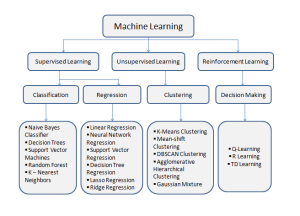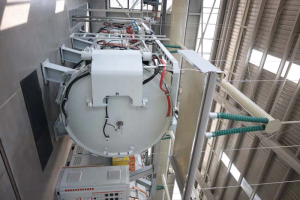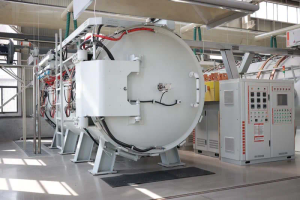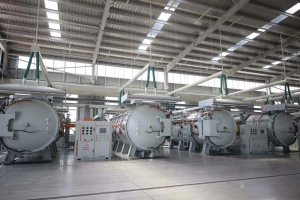Should we be afraid of large technology companies to imitate human wisdom?
Over the years, this has been a hot topic.
As technology continues to develop rapidly, whether we should be afraid that large -scale technology AI to imitate human wisdom has become the main concern of many people. Although the idea of smart machines looks like science fiction, the latest progress in artificial intelligence and machine learning clearly shows that we are moving toward this reality every day. In this article, we will explore the potential benefits and risks of artificial intelligence imitating human intelligence, and study which steps can be taken to ensure the development of this technology for greater benefit.
Understand how artificial intelligence imitates human wisdom
Artificial intelligence that imitates human wisdom refers to a machine that is designed to replicate human cognitive abilities. This includes learning, reasoning, and understanding of language, as well as other skills. Machine learning algorithms are the key part of this technology because they allow machines to analyze data and learn from it in a way similar to human learning.
Examples of artificial intelligence imitating human wisdom include natural language processing (NLP), which enables machines to understand and respond to human language; computer vision allows machines to interpret visual data; deep learning, use artificial neural networks to analyze complex data sets Essence These technologies have had a significant impact on medical care, finance, and transportation, and are expected to continue to grow in the next few years.
The benefits of artificial intelligence imitating human wisdom
One of the main benefits of artificial intelligence to imitate human wisdom is that it is possible to improve the efficiency and productivity of all walks of life. For example, NLP can be used for automated customer service inquiries, so that human beings can focus on more complicated problems; computer vision can be used to identify the defects in the manufacturing process, thereby improving quality and reducing waste; Intelligence can be used to identify patterns in patient data, thereby achieving more accurate diagnosis and personalized treatment plans.
Another potential benefit of artificial intelligence to imitate human wisdom is to create new industries and employment opportunities. As the machine becomes more and more intelligent and capable, new characters will appear, and human and machine skills and professional knowledge are required. This may lead to creation a new field, such as artificial intelligence morality and governance, which is essential for ensuring the development and use of artificial intelligence in responsible and moral ways.
The risk of artificial intelligence imitation of human wisdom
Although artificial intelligence imitating human intelligence has potential benefits, this technology also has major risks. One of the main concerns is the possibility of the replacement of jobs. Because machines are becoming more and more capable of completing the tasks that have been completed by humans, this may lead to serious economic confusion and social turmoil, especially when there is no clear plan to transform workers into new characters.
Another risk related to artificial intelligence that imitates human intelligence is potential prejudice and discrimination. The impartiality of machine learning algorithms depends on the data sets trained. If these data sets contain deviations, then the AI-generated will also have prejudice. This may lead to discriminatory results in the fields of recruitment and loans and may cause existing social inequality for a long time.
Finally, there is also a risk that artificial intelligence that imitates human wisdom may become too strong and difficult to control. As the machine can make a significant impact on human life, this may lead to unexpected consequences and even the threat of survival.
Ensure that artificial intelligence is responsible for the development
Considering the potential benefits and risks of artificial intelligence imitating human intelligence, it is critical to develop and use this technology in responsible and moral ways. This requires a method of various interests including the government, industry and civil society.
A key step that can be taken is to establish clear moral standards and standards for the development and deployment of artificial intelligence that imitates human wisdom. This may include the principles of transparency, fairness, and accountability, which will help ensure the development and use of artificial intelligence.
Another important step is to invest in education and training programs to help workers develop the skills and knowledge required to work with smart machines. This may include projects focusing on data science, machine learning, and artificial intelligence morality, which is essential for ensuring that humans and machines can effectively cooperate.
Finally, the government and the industry must work together to establish an effective regulatory framework to help reduce the risks related to artificial intelligence that imitates human wisdom. This may include measures such as the mandatory audit of artificial intelligence systems, or establishing regulatory agencies to supervise the development and deployment of artificial intelligence.
http://oaicon.com/index.php/2023/02/25/should-we-be-afraid-of-large-technology-companies-to-imitate-human-wisdom/
Summarize
The development of artificial intelligence imitating human intelligence may bring major benefits to society, but it is also accompanied by major risks. With the continuous development of this technology, we must take a proactive and responsible attitude toward its development and use. This requires the methods of various interests including the government, industry, and civil society, and give priority to transparency, fairness, and accountability. Through the correct method, we can use the power of artificial intelligence to create a better and fair world for everyone.






